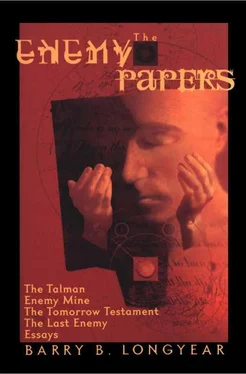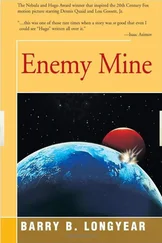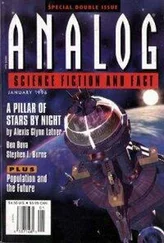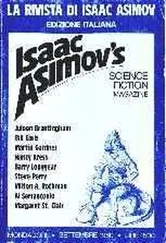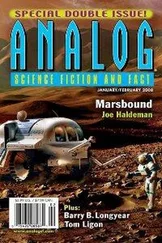Conseh studied the drawing. "Three of the best hunters I know are not from our clan," said Uhe’s first warmaster. "The hunters they most admire come from clans other than their own." Conseh looked at Uhe. "This will mix the clans of the Mavedah. It will take away the power of the masters. The Mavedah will be one people."
"Yes. It is necessary. And if it is also necessary, I will deal with the masters."
"Uhe, what of the children, and who will gather the food?"
Uhe pointed at the drawing. "The first two of each six will be the swiftest of the hunters. They will lead the fight. The first will attack, and then rest upon its victory while the second runs forward to continue the attack. While the second rests upon its victory, the first rushes forward and attacks, repeating as before.
"The next two will be less swift, but they must be strong and durable. It is they who will first hold the land taken by the first two. They will protect the backs of the attackers. And they will be there to move up to support the first two groups should the enemy resistance be unusually strong.
"The fifth and sixth will follow, and they will be composed of our poorest hunters, the tent-makers, the ones who craft our weapons, the gatherers and transporters of food, the healers, the wounded, our old, our servants of Aakva, and all of our children."
Conseh studied the drawing until it was fixed in its head. Then the hunter turned to the opening of Uhe’s tent to leave. Conseh paused, however, and turned back and looked at the drawing.
"Uhe, you have set out to conquer vast lands and mighty tribes. This fight will take years."
"Yes, Conseh."
"And the fighters will be gone from their children for long periods—those who survive. How will the child know its parent?"
"The servants of Aakva will tell the child of its parent, and of the parent’s parent. And the servants will have the child memorize and recite these things as Aakva’s new rite of adulthood. The child will know its parent’s and its ancestor’s deeds before it may pick up its weapon and strive to add to those deeds."
Conseh looked at its ruler as though Uhe was more than a Sindie. "You have thought long upon this. Does Aakva truly speak to you?"
Uhe looked to the ground and clasped its hands behind its back. "It is what you will say to those who ask."
Conseh again turned to the opening of the tent. "Uhe, when will this burden be lifted from us?"
Uhe’s gaze rose and its eyes studied the drawing of the southern Akkujah. "Only when the Mavedah can move at will across Sindie, following the game to where the game chooses to go; then our burden will end."
"We are to be the tribe that lives in the land of war," said Conseh. "We will be Denvedah. Uhe, you are saying that our task is done only when there is no more world to conquer."
"Yes, Conseh. Then we may rest. Go now and choose my warmasters. We attack in thirty days."
As the days passed, and the death drums continued, the hunters of the Madah took on the war order designed by Uhe. Since their place was no longer the Madah, the hunters called their place "of war," and they became the Denvedah.
In that time, Conseh made masters of war: Kessu, Birula, Yaga, and Daes. Kessu and Birula were both chiefs of their clan’s hunts, Yaga was both hunter and mountain guide from the northern Madah. Daes was both master of its clan, a servant of Aakva, and learned in healing.
Daes would master the Sixth Denve, for the Sixth would have the children, aged, and wounded.
The Fifth’s main task was to supply the other five Denve, and Yaga was made master of the Fifth.
Kessu and Birula were wise, sturdy, and respected. And Conseh made Kessu master of the Fourth, and made Birula master of the Third.
Conseh itself would master the First Denve.
The First and Second Denve made up the Tsien Denvedah; the front fighters. The Tsien would always be the first to meet the enemy, and the first to take the enemy’s wrath.
Conseh knew itself to be a good hunter, and able to take action when such was needed. But the warmaster knew that the Tsien Denvedah needed something more in spirit than Conseh itself could provide.
It was during its search for the master of the Second Denve that Conseh happened upon some hunters. The hunters were practicing the accuracy of their spear throwing. The hunters aimed their spears at each other to see and feel the meaning of having Sindie at the ends of spearpoints.
The old food preparer Nuvvea also watched the hunters practice with their spears. Nuvvea had once been chief of the hunt, and as it watched the practice, Nuvvea shook its wrinkled head. Conseh saw this.
"What displeases you, Nuvvea?"
"Warmaster Conseh, I have studied the young hunters with their spears. Although they think otherwise, they still act as though they are on the hunt for darghat. On the hunt, if you throw and miss, the darghat will bolt and run.
A hunter of the Diruvedah still has a spear to throw back. And in close the spear is no use, so the hunter attacks the darghat with its stone knife. The darghat can only bellow and try to strike you with its tail. A hunter of the Diruvedah also has a knife."
Conseh looked at the hunters at their practice. "Your eyes see much, Nuvvea. They are still hunters rather than warriors. What should they do?"
Nuvvea looked down and thought for a long time. "The hunter must keep its spear until it can be certain of both a kill and retrieving the spear. To ward off the enemy weapons until such certainty presents itself, the hunter must be shielded."
"Nuvvea, what is your answer to the problem you have made?"
The old food preparer held out its hands, then dropped them to its sides. "There is an answer. I do not know it yet." Nuvvea faced Conseh. "But there is an answer to the in-fighting when the spear is useless." Nuvvea pulled the food preparer’s ax from its waist and handed it to Conseh.
"A butcher ax?" Conseh studied the hammered, black-metal blade. "Are we to go after the Diruvedah as butchers?"
Nuvvea took back its butcher ax and faced Conseh. "Pull your knife, warmaster."
Conseh studied the old food preparer for a moment, then the warmaster crouched and extended its knife at arm’s length, its point aimed at Nuvvea’s middle. Before the warmaster could react, Nuvvea whipped down its ax upon the knife blade, knocking the knife from Conseh’s hand. When Conseh looked at the ground, it saw the knife, its stone blade shattered.
Nuvvea laughed at the warmaster. "Your face tells me that my suggestion is a good one. Conseh, we are no longer hunters. We are to become warriors, and a warrior is one who hunts its own kind for the purpose of killing it." Nuvvea held up its ax. "We will be butchers, Conseh, if we are to defeat our enemies."
"Nuvvea, how many of your blades can you make in the next twenty days?"
"Of all the clans, there must be many. In a land without meat, there is little need for a butcher’s ax. In the lands that we shall see, the meat will fight back. The metal workers can make more, perhaps twenty a day if we can supply them with food. Their work is hard."
Conseh thanked the food preparer and returned to watching the hunters at their throwing.
The first warmaster thought upon the things that it had seen and heard, and Conseh made Nuvvea master of the Second Denve.
On the thirty-ninth day of Uhe’s rule of the Mavedah, the six Denve were prepared to cross the mountains and strike into the Irrvedah, a third of the Tsien Denvedah armed with the black metal axes. Uhe was forward counseling its warmasters in the morning shadow of the Akkujah Mountains when Iyjiia approached, followed by the old masters of the Mavedah.
Uhe was speaking to the warmasters of the need to obtain the heights of the first mountain crest before Aakva’s light blinded them, and then waiting until Aakva was at their backs before striking into the valley.
Читать дальше
